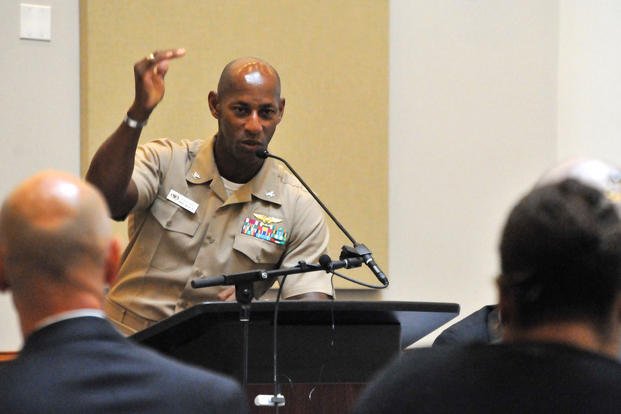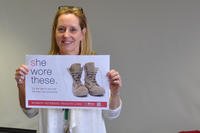You are already a member of the strongest network of people in the world: veterans of the U.S. military. We know the last thing you want to do when you transition out of the military is to hang out with other veterans; we all go through that phase.
Get this feeling out of your system as quickly as possible. Go relax somewhere, get "nasty" and grow your hair out, and get away from everything military. Afterward, when you run out of money and you're faced with the prospect of living with your parents again, leveraging the veteran contacts in your community won't seem so bad.
So where do you begin?
Most veterans who transition off active duty have absolutely no idea what they want to do. If you feel this way, welcome to the club. Start by exploring all the different careers and opportunities that are out there by connecting and speaking with the people who are closest to you.
Try to meet as many new people as possible as well. Be a sponge. Take it all in so you can target your networking to specific people and companies. When you first start, you'll probably learn more about what you don't want to do than exactly what you do want to do.
That's OK. At least you're narrowing down your options.
Network with Your Friends and Family
This sounds like a given, but it's surprising how reluctant some people can be to ask family for help. Talk to your mother and father; ask them about their career paths.
See whether they know anyone who's hiring. If you have any siblings or aunts and uncles, do the same. Reconnect with your old high school friends as well.
See what they're doing and whether they like their current career paths. If nothing else, you'll learn about a career or industry and realize that you absolutely do not want to pursue it.
Stay Connected with the Veterans You Served With
Be proactive and stay connected with the men and women who you served with on active duty. Whether it's through Facebook, LinkedIn, email or another mode, make sure that they are permanently in your world in some way, and that you're doing everything you can to help and support them in their transitions.
As you and your veteran buddies establish yourselves professionally and begin to advance in your careers, you will all rise and mutually support one another along the way, just as if you were on patrol overseas.
Remember: We may lose our rank when we exit the military, but we never lose our commitment to watching each other's backs. Reach out and reconnect with your platoon commander, first sergeant, squad leader and even the greenest boot in your unit; you never know where your next opportunity will come from.
Volunteer with a Local Nonprofit
This will help expand your network and give you some valuable civilian experience to put on your resume. When I first moved to New York City, I volunteered with an organization called Reserve Aid, which provides financial assistance to wounded service members.
One of my veteran buddies was on the board of directors of the organization, so I accompanied him to a meeting one night, sat in the back and just did whatever was asked of me, which wasn't much, but I was happy to just be there and help out.
I ended up getting so much more in return by volunteering. I met countless other veterans and influential people in the New York City area. My network nearly doubled. And it just so happened that the founder of the organization was a graduate of New York University and a former Army tanker. He ended up writing my graduate school application.
In short, go volunteer someplace. It won't kill you to give up a few hours of your time a month. So many great organizations are out there that help veterans, underprivileged children, the homeless and other groups in need. Find a way to give to your community. You will end up getting so much back in return.
You are a member of the strongest network of people in the world. You have more contacts and opportunities than you think, but it's on you to find and take advantage of them.
Michael Abrams is an Afghanistan veteran and founder of FourBlock, a veteran career development program based in New York. He is the author of "Business Networking for Veterans," as well as an adjunct professor at Fordham University.
Find the Right Veteran Job
Whether you want to polish your resume, find veteran job fairs in your area or connect with employers looking to hire veterans, Military.com can help. Subscribe to Military.com to have job postings, guides and advice, and more delivered directly to your inbox.











